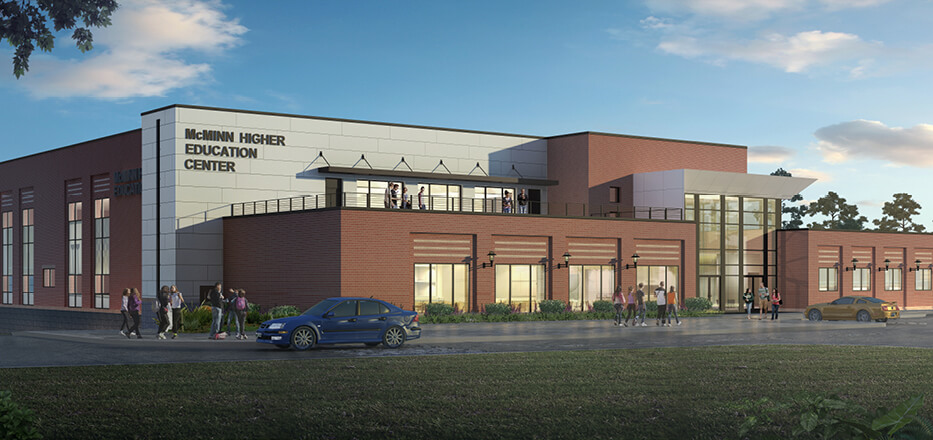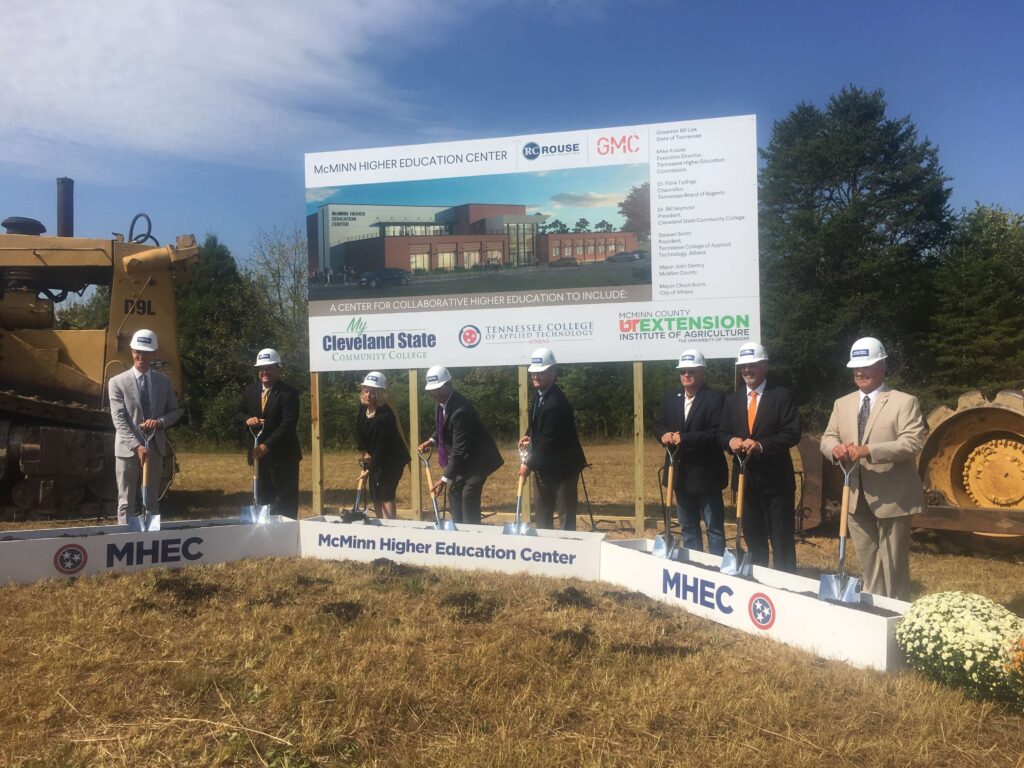McMinn Center of Higher Education expected October 2020
October 14, 2019 · Projects

Officials broke ground on the McMinn Center of Higher Education in Athens, Tenn., on September 27, 2019. The $17.75 million project, more than seven years in the making, is a collaboration of the Tennessee College of Applied Technology-Athens, Cleveland State Community College, the University of Tennessee Institute of Agriculture’s Extension Services, Adult Education, McMinn County and Athens city governments, as well as local industry. The facility is intended to consolidate different educational and career assistance efforts while providing local industry workforce training and offering two-year associate’s degrees in agriculture and other services. Adult Basic Education programs also will be housed there.
“It’s a true partnership,” Tennessee Gov. Bill Lee said during the groundbreaking ceremony. “Government isn’t the answer to the greatest challenges we face in our day but government has a real important responsibility and that is to create an opportunity for real partnership where a community comes together. This is going to change this community.”
GMC is providing civil engineering, architecture, interior design and construction administration services for the McMinn Center project. The 51,500-square-foot, two-story facility sits on a 9.52-acre site and includes classrooms, laboratories, high-bay vocational labs, administrative offices, a multipurpose meeting space with demonstration kitchen, and support spaces. New parking, site development, landscaping and utility infrastructure are also part of the project, which is being designed to meet the state’s High-Performance Building Requirements (HPBr).
The McMinn Center aligns with Lee’s push to strengthen the economies of rural communities and overall workforce development as the state strives to reach its “Drive to 55” goal of 55% of adults having some type of postsecondary degree or credential by 2025. The governor also emphasized the significance of the center being home to agricultural education programs through the UT Agriculture extension that it will house. At the groundbreaking, Lee told reporters he will continue to assess rural areas of the state that need increased support in education and workforce development, using the McMinn Center project as a model that could be replicated in other places.
Tennessee Board of Regents Chancellor Flora Tydings said the initiative is the embodiment of Lee’s emphasis on career and technical education. “We have to change the way we think about what skilled trades is, what the jobs of the future are, what the future workforce needs are going to be,” she said.
For Athens City Manager Seth Sumner the center is an example of the “rural renaissance” the community and Southeast Tennessee is experiencing. “You don’t have to be big-city to do big things,” Sumner said. “We are currently experiencing a promising venture that embodies the strengths of regional partnerships where together we are constructing resources for the next generation of Tennesseans. More than bricks and metal, this building will be a symbol of this community’s everlasting investment in our most important asset, human capital.”

Tydings estimated the state government’s cost would be $14.23 million, with the remaining $3.4 million coming from other sources. McMinn County provided the equivalent of $1 million toward the project, while the city of Athens contributed $165,000, according to the State Building Commission. McMinn County Mayor John Gentry said higher education is not a traditional area in which local governments invest or develop, but it’s an important one for the region. “The message is being heard by our young people that there’s a great quality of life that can be found in the area of skilled trades, and this building will be a testament to that,” Gentry said.
The property for the facility was donated by the McMinn County’s Economic Development Council and is located across the highway from the Denso manufacturing plant. The project is scheduled for completion in October 2020.